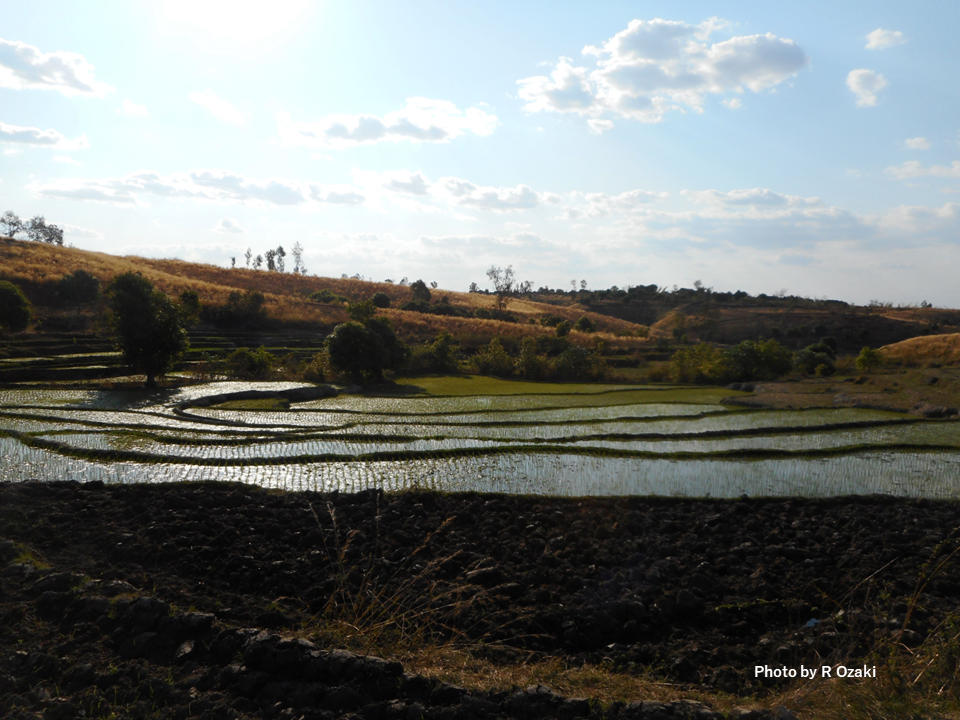Pick Up
991. Writing a “Prescription” for Poverty in the Rice Terraces of Madagascar

Writing a “Prescription” for Poverty in the Rice Terraces of Madagascar
Use "development economics" instead of a stethoscope to examine the patient.
The work of development economists is sometimes compared to that of a doctor. This is because it is like writing a "prescription" for poverty reduction. Indeed, the process of listening to farmers (i.e., interviewing), conducting surveys (i.e., medical examination), and suggesting ways to improve their lives (i.e., writing prescriptions) may be similar to the work of a doctor. However, farmers do not come to us for consultation (=see the doctor). Therefore, our work begins by visiting local farmers and listening to them (= making house calls). I would like to talk about the deeper reason why we go all the way to the field to listen to the farmers.
Can't use fertilizer? Choose not to use?
One of the countries in sub-Saharan Africa is the Republic of Madagascar. It is an island country similar to Japan and is often shown on television, giving many people the image of a "paradise” rich in nature and inhabited by rare plants and animals. I have been studying what makes rice farmers in Madagascar decide to use fertilizers. Many African countries do not have a long history of rice cultivation, but Madagascar actually has an Asian-like tradition of rice cultivation, with beautiful terraced rice fields planted in straight rows.
While such a beautiful rural landscape prevails, there is one problem that has not been solved for many years. Chemical fertilizers are rarely used in rice fields. Other African countries face the same or similar situation too. Rice is a big part of the farmers' income, so it seems that their lives should be enriched by using fertilizers to increase their production. So why do so many farmers not use fertilizers?
When I started this research, I thought that either there were no stores selling fertilizer in the villages, or there were too few stores and the farmers did not know about them, or they were too poor to even think about spending money on fertilizer. However, .......
What we found during our on-site investigation
In order to write the right prescription, an interview and examination are essential. So we set out to do a field survey. We found some surprising facts. The first surprise was that many farmers knew where to buy fertilizer and the approximate price. We also found that many farmers used fertilizer for their fields and other crops, but not for their rice paddies. After a detailed analysis of the data collected, an answer emerged. That is, the price of fertilizer is too high to buy the amount of fertilizer needed to increase the yield of paddy rice.
In other words, the farmers were not so poor that they could not afford to buy fertilizer at all. They made a sound decision: "We will not use fertilizer on rice fields at the current price," and "If we do, we will give priority to other crops where the use of fertilizer is likely to be more effective than on rice fields. This decision made economic sense.
Fertilizer prices have recently spiked due to international factors, and without government subsidies or other policies, it is unlikely that prices will drop sharply. Knowing that farmers are making sound decisions, we may be able to change the current situation by promoting technologies that make fertilizers more effective than they are now, in quantities that farmers can afford. To this end, we are also engaged in interdisciplinary activities, such as working with experts in soil and crop science to develop efficient ways of using fertilizers that match the soil characteristics of rice fields and analyze their cost-effectiveness.
Listen to the rural farmers without the filter of "poor".
Looking back, I think I was initially captivated by the idea that low fertilizer use had something to do with their poverty. Not just in this fertilizer example, but when we look at the lives of farmers in developing countries, we often come across questions like, "Why aren't they doing this the way it should be done? " It's easy to think, "They're poor, so they can't do it". But through my research in Madagascar, I realized that in order to understand the behavior of local people, it is important to remove the filter of "poor farmers" and look for reasons that would convince us that we would do the same thing if we were in their position. Field research is very hard work, but I would like to continue it with sincerity and contribute to the eradication of poverty.
This article originally appeared in Koho JIRCAS Vol. 13 (In Japanese).
Contributor: OZAKI Ryosuke (Social Sciences Division)
